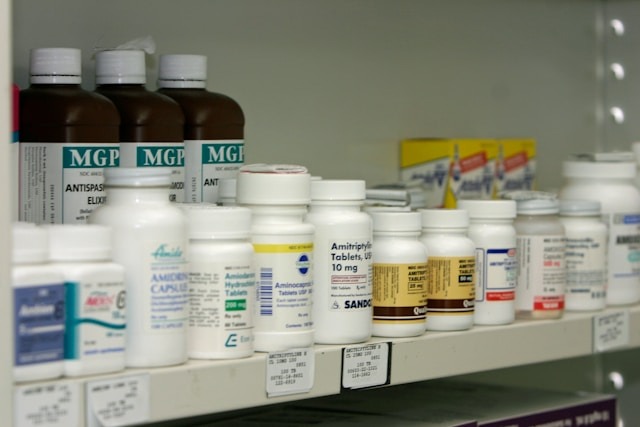The Rise of Fake Drugs in Nigeria: How to Identify and Stay Safe
Fake drugs in Nigeria are one of the most dangerous health problems facing the country today. Counterfeit medicines are flooding the markets, from malaria tablets that have no active ingredients to painkillers mixed with toxic substances. According to the World Health Organization (WHO), Africa accounts for over 42% of the world’s fake and substandard medicines, and Nigeria is one of the most affected countries. These drugs are not just ineffective; they are deadly. They lead to treatment failures, drug resistance, and thousands of preventable deaths every year.
📌 What Are Fake Drugs?
Fake drugs are counterfeit or substandard medicines that are deliberately manufactured to deceive buyers. They may look like genuine drugs, but they either contain the wrong active ingredient, the wrong dosage, or no active ingredient at all. In some cases, they are made with harmful chemicals that can damage organs and cause long-term health problems. Unfortunately, because fake drugs are often packaged to look like the real thing, many Nigerians find it hard to tell the difference.
⚠️ The Dangers of Fake Drugs in Nigeria
The dangers of fake drugs go far beyond wasting money. They can have life-threatening consequences. Some of the key risks include:
- Treatment Failure: Patients do not get cured because the medicine is useless.
- Drug Resistance: Continuous use of counterfeit drugs makes diseases like malaria and tuberculosis more difficult to treat with genuine drugs.
- Severe Health Complications: Toxic chemicals in fake drugs can cause kidney failure, liver damage, or even death.
- Wasted Resources: Families spend scarce money on fake drugs, only to spend even more later on proper treatment.
- Loss of Trust in Healthcare: Many Nigerians lose confidence in hospitals and pharmacies when medicines fail to work.
For example, in 2008, a batch of fake teething syrup killed over 80 children in Nigeria because it contained dangerous chemicals instead of safe ingredients. Such tragedies show how deadly counterfeit drugs can be if not controlled.
🔎 How to Identify Fake Drugs in Nigeria
Spotting fake drugs can be difficult, but there are several red flags that every Nigerian should know. Here are practical steps to protect yourself:
- Check NAFDAC Number: Every genuine drug in Nigeria must carry a NAFDAC registration number. Confirm the number online or through NAFDAC’s verification services.
- Examine Packaging: Look out for spelling errors, faded labels, or broken seals. Genuine drugs usually come in high-quality packaging.
- Inspect Expiry Dates: Many counterfeit drugs are expired but repackaged to look new. Always double-check the expiry date.
- Buy From Licensed Pharmacies: Avoid buying drugs from bus stops, open markets, or roadside vendors. Stick to trusted pharmacies and hospitals.
- Use Mobile Authentication Service (MAS): Some genuine drugs come with scratch codes you can verify by sending an SMS. This is a quick way to check authenticity.
- Check Color, Taste, and Smell: If a drug looks unusual or tastes different from what you’ve used before, consult a pharmacist immediately.
💡 Why Fake Drugs Thrive in Nigeria
Several factors contribute to the rise of fake drugs in Nigeria:
- High Demand for Cheap Medicine: Many Nigerians cannot afford hospital treatment, so they turn to cheaper, unverified drugs in open markets.
- Weak Law Enforcement: Despite NAFDAC’s efforts, poor border control and corruption make it easy for counterfeit drugs to enter the country.
- Lack of Awareness: Many people do not know how to identify fake drugs or the dangers they pose.
- Profit Motive: Criminals see fake drugs as a highly profitable business because the risk of being caught is low compared to the gains.
💡 How Nigerians Can Stay Safe
While the fight against fake drugs is ongoing, ordinary Nigerians can also take steps to protect themselves and their families:
- Always buy drugs from licensed pharmacies, hospitals, or recognized outlets.
- Cross-check any suspicious drug with NAFDAC or a qualified pharmacist.
- Avoid self-medication, as it increases the risk of buying fake drugs without professional guidance.
- Educate family, friends, and neighbors about the dangers of counterfeit medicines.
- Report any suspected fake drug to NAFDAC through their hotlines, mobile apps, or website.
🚀 Government and Community Efforts
Over the years, NAFDAC has made progress in reducing fake drugs in Nigeria by introducing stricter regulations, conducting raids on open drug markets, and creating public awareness campaigns. The Mobile Authentication Service (MAS) has also helped Nigerians confirm genuine drugs through text messaging. However, challenges remain, especially at Nigeria’s borders where counterfeit medicines continue to enter.
Communities, religious leaders, and schools also have roles to play in spreading awareness. With collective effort, Nigerians can reduce the demand for fake drugs and force criminals out of business.
✅ Conclusion
The rise of fake drugs in Nigeria is not just a health issue but a national security problem. It destroys lives, weakens healthcare systems, and wastes scarce resources. But with awareness, vigilance, and strong government enforcement, Nigerians can win this fight. Remember: your health is your wealth—don’t gamble with it by buying cheap or suspicious drugs.
Internal Link: For more health awareness, read our article on The Health Dangers of Self-Medication in Nigeria.
Outbound Link: Visit NAFDAC official website to learn more about reporting and checking fake drugs.

